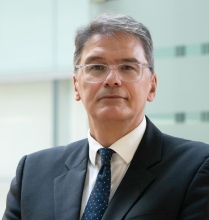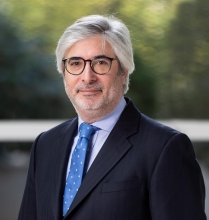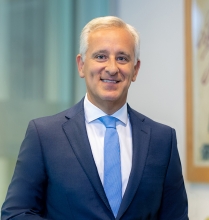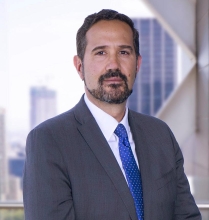International Arbitration Newsletter - July 2020 | Regional Overview: Middle East and Africa
The most relevant updates from Middle East and Africa from the global International Arbitration and ADR practice group at Garrigues.
Gambia
ICSID confirms US$ 23 million award against Gambia
In 2015 a tribunal found in favour of Australian mining company, Carnegie, in its claim against Gambia for compensation for damages for the expropriation of a mining project.
Gambia has been seeking for years to set aside this award on the grounds that the Tribunal was improperly constituted. In particular, it claimed that its fundamental rights to appoint its own arbitrator were denied.
However, a ICSID annulment committee has confirmed that ICSID acted correctly in appointing the arbitrator on behalf of Gambia as Gambia had waived its right to do so by not appointing an arbitrator within the 45-day period granted for that purpose in the licensing agreement under which the arbitration was filed.
Iran
NIGC to pay 2 billion euros to Turkmengaz
The National Iranian Gas Company (NIGC) has been ordered to pay approximately 2 billion euros to Turmengaz, the national gas company of Turkmenistan for unpaid imported gas.
Despite the fact that Iran has the second largest gas reserves in the world, these are located in the south of the country.I It has depended on gas from Turkmenistan to supply the north. For this reason, in the 1990s various agreements were signed for the long-term supply of gas to Iran from Turkmenistan.
Allegedly, in 2007-2008 Turkmengaz took advantage of the fact that Iran was experiencing a gas shortage due to a cold winter and raised its prices nine times, which meant that Iran could not afford such payments.
In 2017 Turkmengaz cut off supplies to Iran on the grounds that NIGC was not paying for the gas delivered and requested arbitration to recover a debt of more than 1.54 billion euros.
According to the Iranian ministry, the disputed issues were the exact amount of debt and the quality of the gas delivered by Turkmengaz.
An ICC tribunal found in favour of Turkmengaz and rendered an award against NIGC in the sum of 2 billion euros.
Iraq
German company files US$ 1 billion claim against Iraq over cement plant
Iraq has been sued before the ICSID for US$ 1 billion by German transport company, AHG.
AHG claims that, after reaching a licensing agreement with the Iraqi state, the latter unjustifiably expropriated its cement production business.
Specifically, AHG acquired a license in 2008 to rehabilitate a cement plant in the city of Kirkuk, located north of Baghdad. The agreement included a three-year rehabilitation period, but according to AHG, three months after the license was granted, the Iraqi government began to complain about the lack of progress in the works, withdrew the license and began litigation in a local court.
The appeal court found the government's allegations of delay unjustified and unfounded and ordered an extension of AHG’s license at the Kirkuk cement plant.
AHG now claims that Iraq failed to comply with this mandate because firstly, in March 2017 the government took over the plant and arrested several staff members of AHG’s personnel. In addition, the German company argues that, in early 2018, the State invaded the factory and expropriated 51% of the company’s local business interests by an alleged court order.
After failing to reach a settlement, AHG filed a lawsuit with ICSID claiming more than US$ 1 billion in compensation.
Libya
Libya to pay €74 million to Austrian infrastructure company
An ICSID tribunal has issued an award ordering Libya to pay 74 million euros in damages toAustrian construction company, Strabag, over infrastructure projects stalled by the country´s civil war.
This claim is part of a group of claims presented by Strabag over different projects that were interrupted by the situation of political instability that the country suffered at the beginning of the decade and that led to the fall of the dictator Gaddafi.
The project in this case was valued at 434 million euros and aimed at improving Libya's infrastructure, in particular water and sewage infrastructure as well as electricity and other telecommunications.
The Tribunal held that the Lebanese state had violated the umbrella clause of the Austria-Libya BIT as well as the war clause included in the BIT.
Mauritania
Mauritania defeats Grupo Copisa in iron ore claim
Société Nationale Industrielle et Minière (SNIM), Mauritania’s state-owned mining company, has won a 140 million euros arbitration against Barcelona-based Copisa Group over alleged delays in construction of an iron ore enrichment plant.
Copisa was awarded a contract to develop the Guelb 2 project. This project was centered in the building of an iron ore enrichment plant in Zouérat, a city in the desert.
After numerous disputes over delays in the completion of construction, Copisa commenced ICC arbitration, under a clause in the construction contract, to be exempted from any compensation for delay.
However, the ICC tribunal rejected the request on the grounds that the clause required that the delays be exclusively attributable to the SNIM and the claimant did not provide evidence of that fact.
Accordingly, the tribunal rejected all of Copisa’s claims although it has granted Copisa’s request to declare the construction work at Guelb completed.
Contacts




-
+52 55 1102 3570
-
+57 601 326 69 99

-
+56 2 29419000


